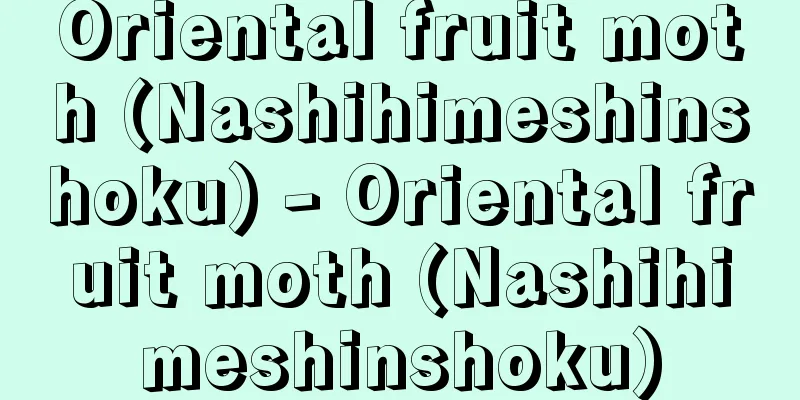Sweet - Sweet

〘Adj.-kochi〙 sweet/sweet 〘Adj.-ku〙[1] Used in reference to taste. ⇔ spicy. ① Having a sugary taste such as sugar or honey. ※Nihon Shoki (720), 40th year of Keiko (Kitano Honin) "I would not eat a sweet taste . " ② Lightly salty. Not spicy. ※Hitomarushu (early 11th century) part 2 "The water of the flowing harbor was delicious, so the flavor was sweet." [2] The state of being psychologically perceived as having the taste of sugar or honey. ① (Used in reference to words) It is pleasant to hear and people are likely to be fooled. ※Shomonki (around 940): "Because of Sadamori's sweetness, he implicitly became like him , even though it was not his intention." ※Tsuchi (1910) <Nagatsuka section> 2: "He came to solicit me and told me some very sweet stories." 2: The affection is delicate. It is often used about the love between a man and a woman. ※Dochirinakirishitan (1600 edition) (1600) 5: "The deep love is extremely sweet and beautiful." 3: (Used in reference to music, fragrances, and various other things) Enchantingly pleasant. ※Nirvana Sutra Collection, Volume 11, Early Heian Period (around 850) "Selflessness is bitter. Pleasure is sweet." ※ Jashumon (1909), Kitahara Hakushu, Indoor Garden "Sweet, and also a little bit, Heliotrope." [3] Psychologically, it is a state lacking in harshness, sharpness, strength, etc., from the feeling that it is not salty. ① Lackluster. Lazy. Also, being overwhelmed with love and not strict. ※Doihon Shui-sho (1477), 6 "It is better to be a little lenient with those who stay with you." ※Agura Nabe (1871-72), Kanagaki Robun, 3 "Amai wa ha oya no shokuri." ※Tanin no Kao (1964), Abe Kobo, Gray Notebook "I am not placing any sweet expectations on you." ② Not solid. Not neat. It is not firm. ※Kan'ei-published Mokyu-sho (around 1529) 2 "The difference between tendons and flesh is that tendons are strong. The flesh is taken. It is on the soft side. It is like it is slightly swollen." ※Blue Monday (1965-67) (Kaiko Ken) 2 "The lock on this house is loose." 3. It is not sharp. ※Rakugo: Opening of Tools (1891) (Sanyutei En'yu III) "This saw is really soft." Ama-ga-ru (transitive, self-referential, 5th (4th)) Ama-ge (adjective, verb) Ama-sa (noun) Ama-mi (noun)Ama-eru [sweet]Aman-zuru [sweet]Amae [sweet]Aman Jiru [Sweet]Ama [sweet]Amashii [sweet]Ama-yu [sweet]Source: The Selected Edition of the Japanese Language Dictionary About the Selected Edition of the Japanese Language Dictionary Information |
〘形口〙 あま・し 〘形ク〙[一] 味覚に関していう。⇔辛(から)い。① 砂糖や蜜など糖分の味がある。※書紀(720)景行四〇年(北野本訓)「甘(アマク)味はひを食(みをしし)たまはじ」② 塩気が薄い。辛くない。※人麿集(11C前か)下「流れあふ湊の水のうまければかたへもしほはあまきなりけり」[二] 心理的に砂糖や蜜の味のように感じられるさま。① (ことばに関していう) 人が聞いて気持がよくて、ついうかうかと欺されそうである。※将門記(940頃か)「貞盛、人口の甘(あまき)に依り、本意に非ずと雖も暗に同類と為って」※土(1910)〈長塚節〉二「勧誘に来て大分甘い噺をされた」② 愛情がこまやかである。男女の間の愛情についていうことが多い。※どちりなきりしたん(一六〇〇年版)(1600)五「ふかき御あいれん、すぐれてあまくましますびるぜんまりやかな」③ (音楽や香りやその他いろいろの物事に関していう) うっとりと快い。※涅槃経集解巻十一平安初期点(850頃)「無我は苦き味なり。楽をば恬(アマキ)味と為す」※邪宗門(1909)〈北原白秋〉魔睡・室内庭園「甘く、またちらぼひぬ、ヘリオトロオブ」[三] 心理的に、塩気のきいていないような感じというところから、きびしさ、鋭さ、強さなどに乏しいさま。① なまぬるい。手ぬるい。また、愛情におぼれて厳格でない。※土井本周易抄(1477)六「同宿にはちっと甘まう当るがよいぞ」※安愚楽鍋(1871‐72)〈仮名垣魯文〉三「あまいははおやのしをくり」※他人の顔(1964)〈安部公房〉灰色のノート「甘い期待をかけたりしているわけではない」② しっかりしていない。きっちりしていない。しまりがない。※寛永刊本蒙求抄(1529頃)二「筋と肉とは、筋はつよいぞ。肉はをとったぞ。あまい方ぞ。うすふくれたやうなことぞ」※青い月曜日(1965‐67)〈開高健〉二「この家は鍵が甘いぞ」③ 切れ味が悪い。※落語・道具の開業(1891)〈三代目三遊亭円遊〉「この鋸はよっぽどあまいナア」あま‐が・る〘自ラ五(四)〙あま‐げ〘形動〙あま‐さ〘名〙あま‐み〘名〙
あま・える【甘】あまん‐・ずる【甘】あまえ【甘】あまん・じる【甘】あま【甘】あま・し【甘】あま・ゆ【甘】出典 精選版 日本国語大辞典精選版 日本国語大辞典について 情報 |
Recommend
Psychotropic drug - psychotropic drug
Psychotropic drugs, in a broad sense, are a genera...
Kufa - Kufa (English spelling)
A town in Karbala Province in central Iraq. It me...
Jokoji Temple
The head temple of the Joko-ji sect of Shinshu Bu...
Parasitism - Takuran
This is a habit of birds that breed by leaving th...
Nagashibina (Flowing Dolls) - Nagashibina
An event held on March 3rd in which dolls are sent...
parish church
…A parish is the pastoral area of a parish prie...
Trautwein, F. (English spelling) TrautweinF
...Various timbres are created by using a sound s...
Camaedorea seyfrizii - Camelopardalis seyfrizii
...The small table palm C. tenella Wendl. has bea...
Victoria de Los Angeles
1923‐ Spanish soprano. Studied at the Barcelona Co...
Housewife - Shufu
A woman who manages the household. As families th...
Safety Committee - Anzen Iinkai
…(c) General Safety and Health Officer and Safety...
n-dentate ligand - Enzahaiishi
...the "dentate" comes from this. The l...
Skidmore, L.
...known for designing large commercial buildings...
Nasu no Kuni no Miyatsuko Monument - Nasu no Kuni no Miyatsuko Monument
<br /> An ancient monument in Yutsukami, Ota...
Kai Fukuda - Fukudenkai
A religion founded in 1908 by Nakayama Tsuyu (1862...








![Higashinaruse [village] - Higashinaruse](/upload/images/67cc99a9eaed3.webp)
